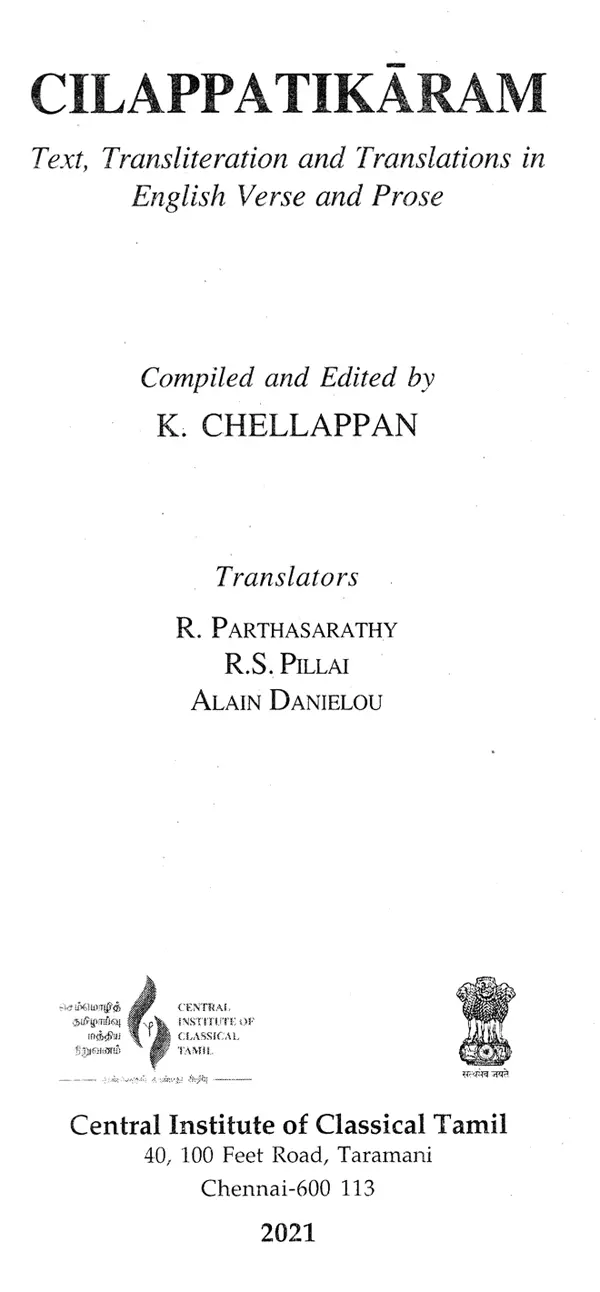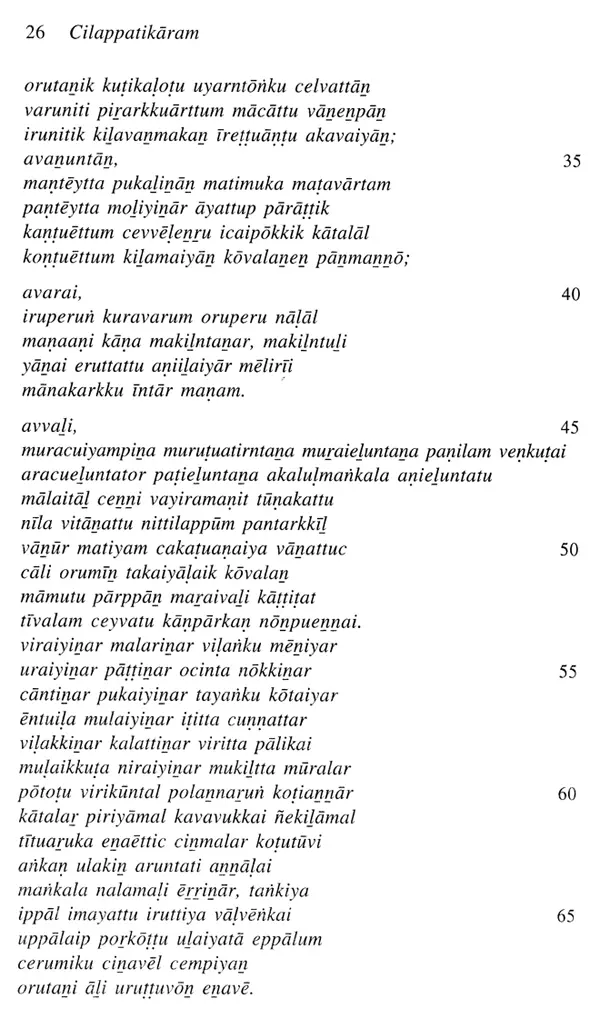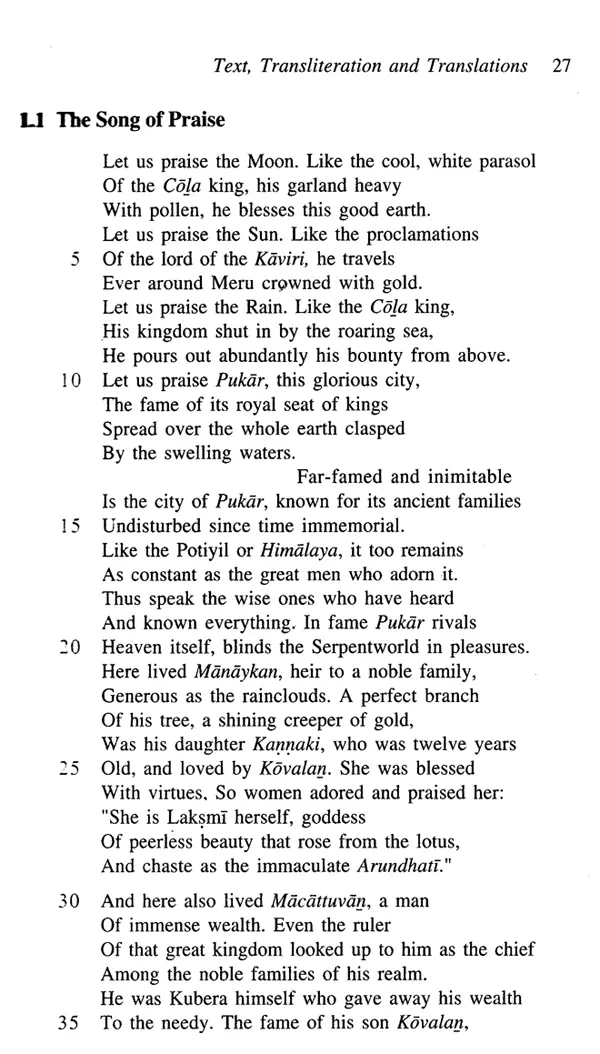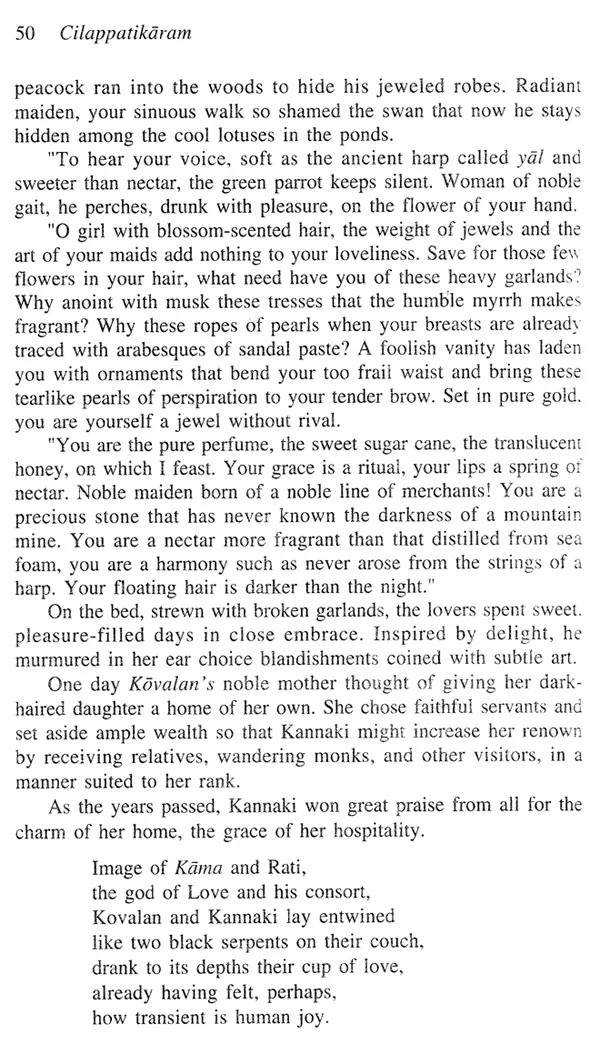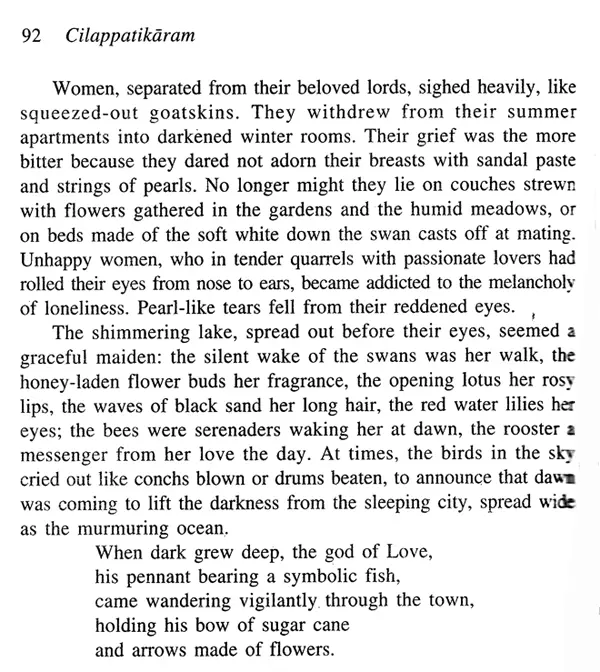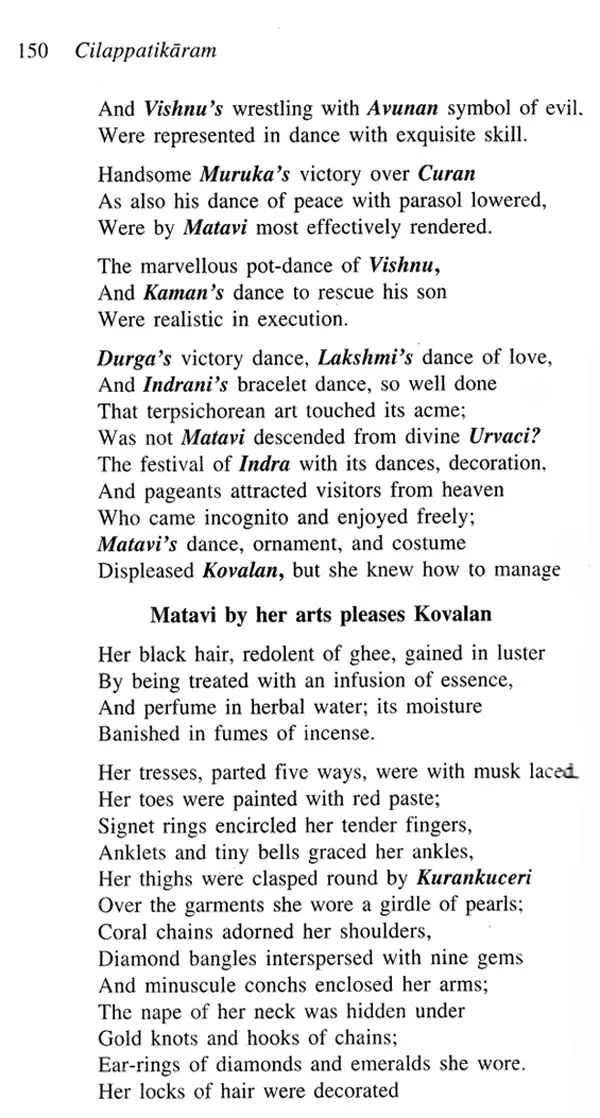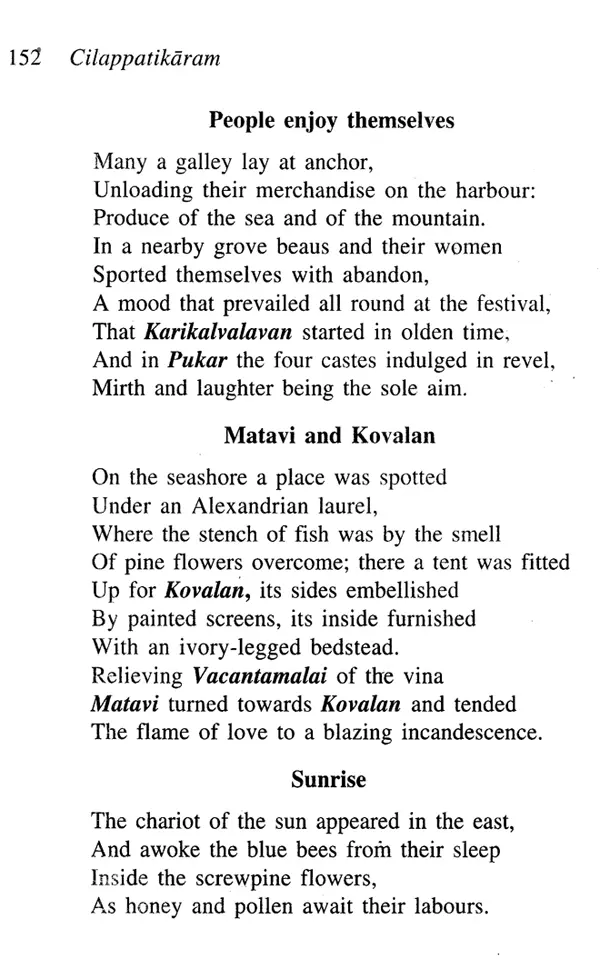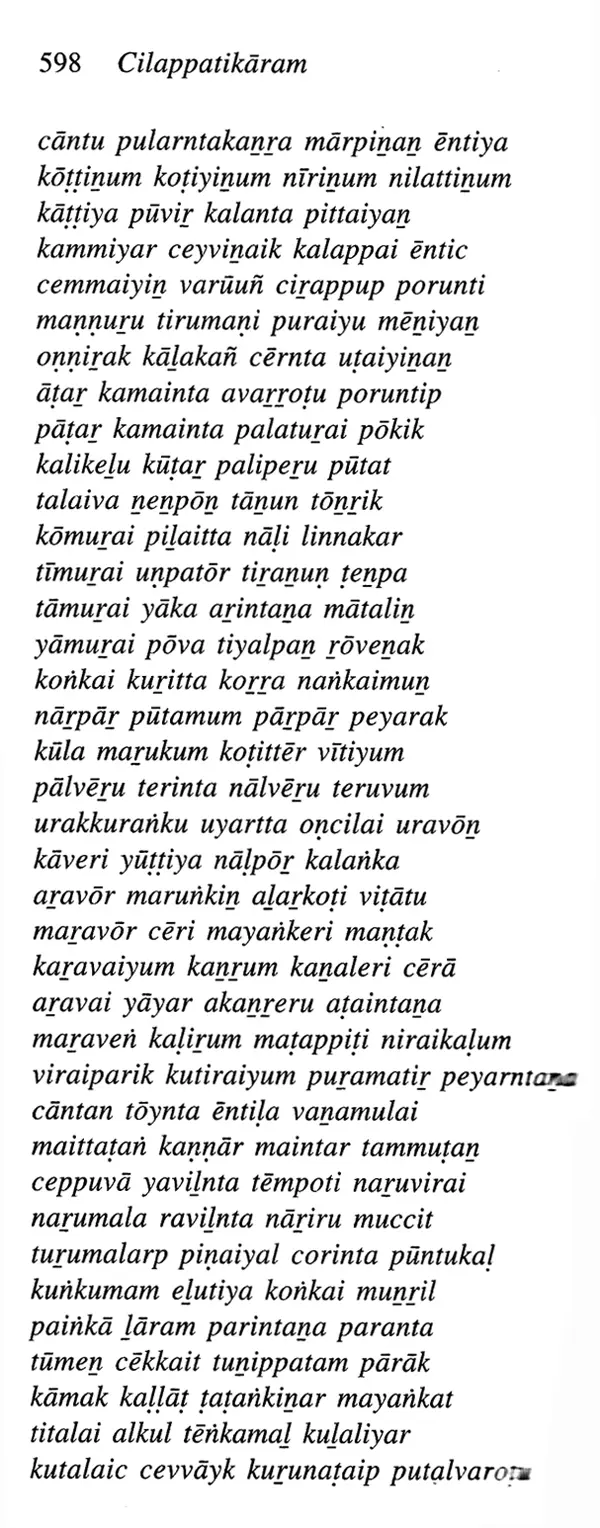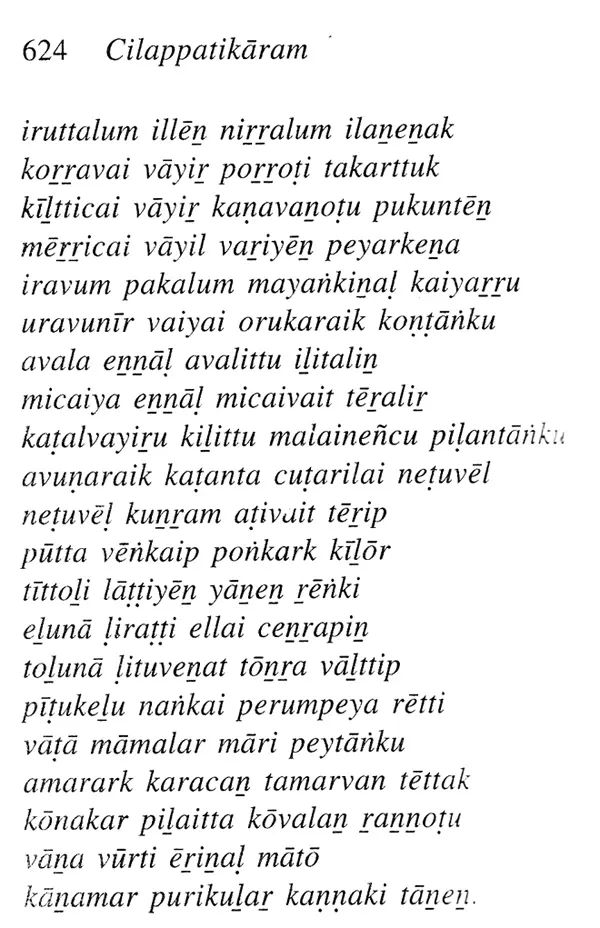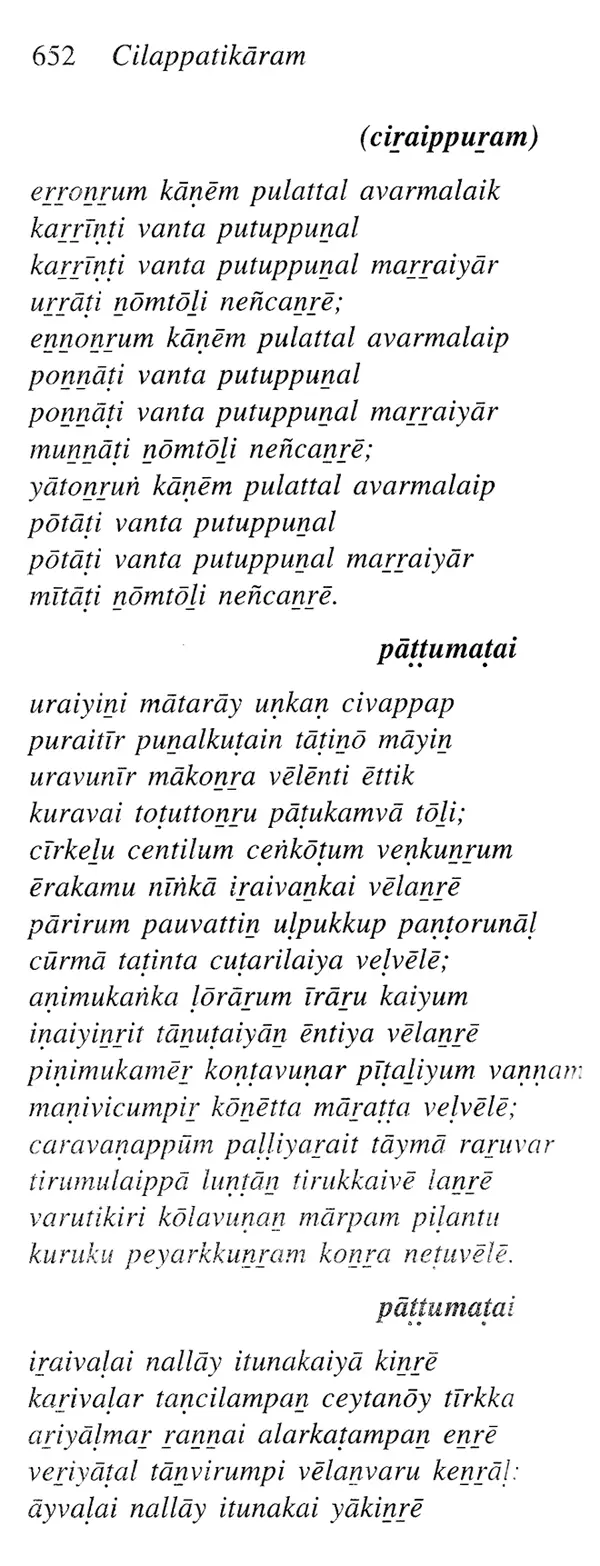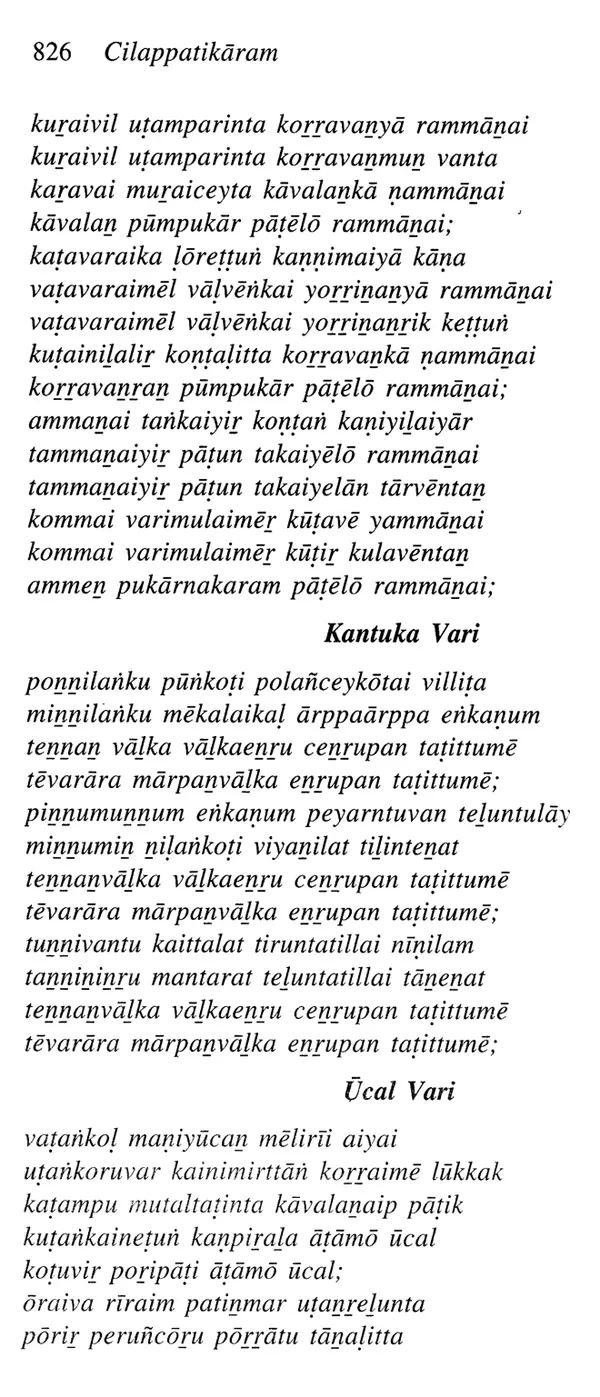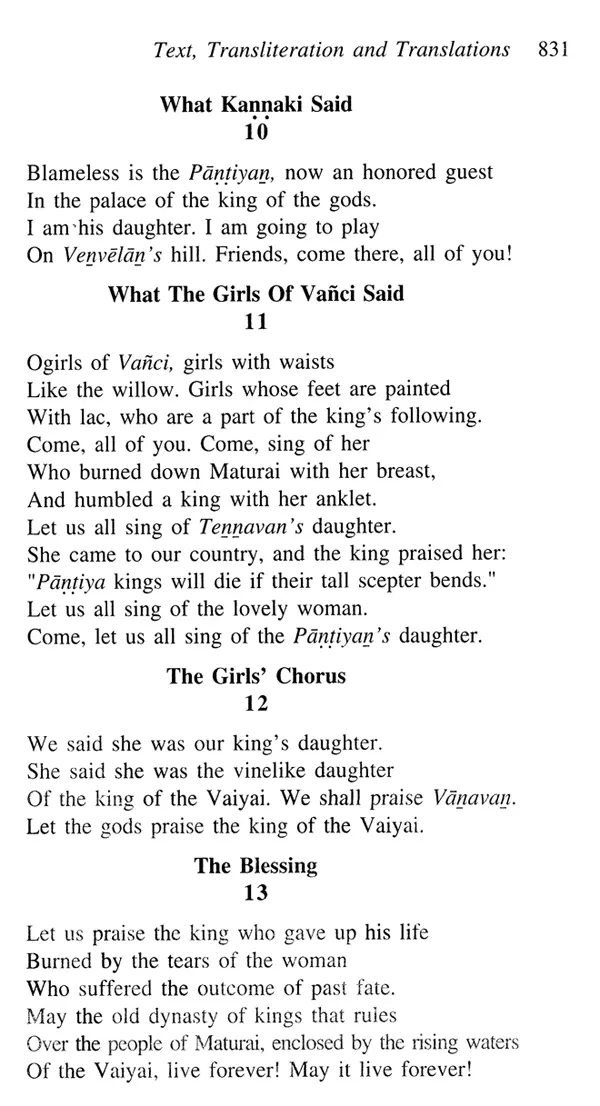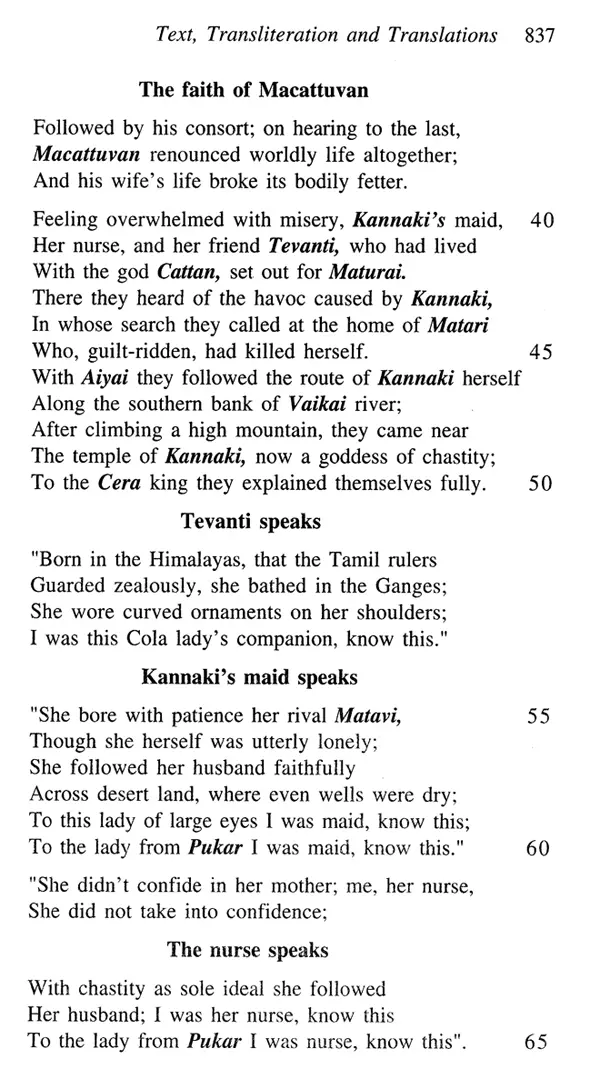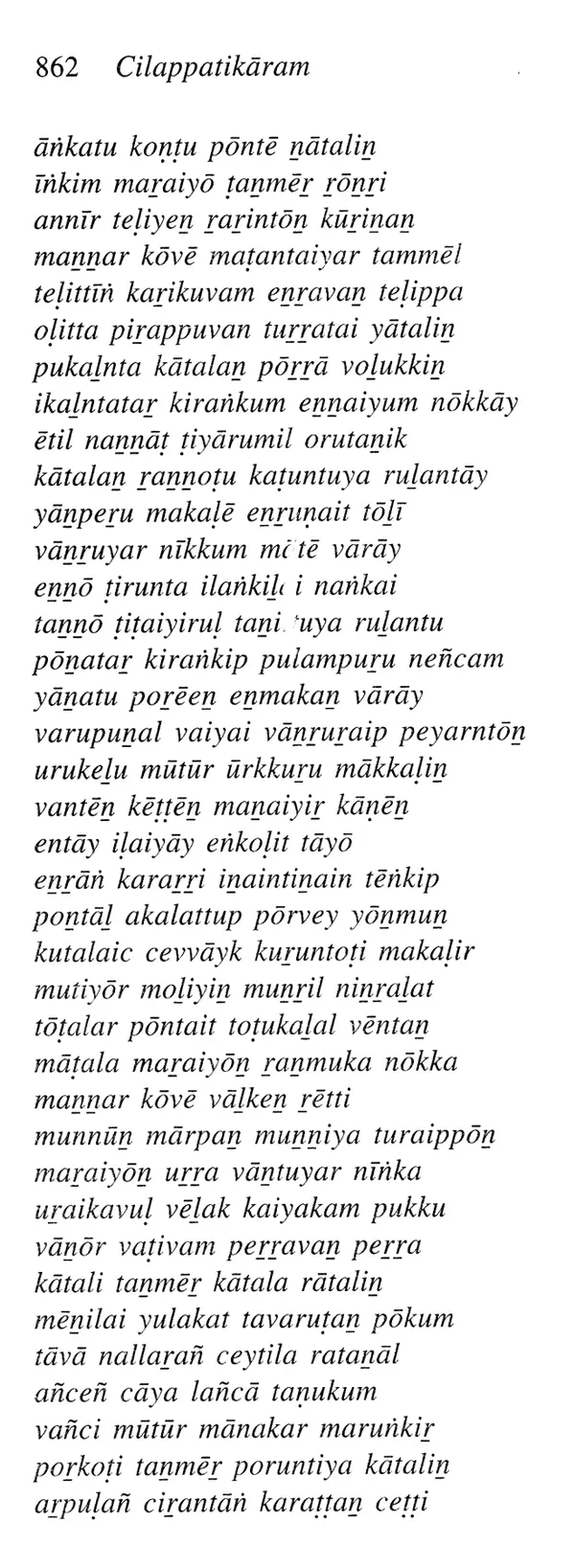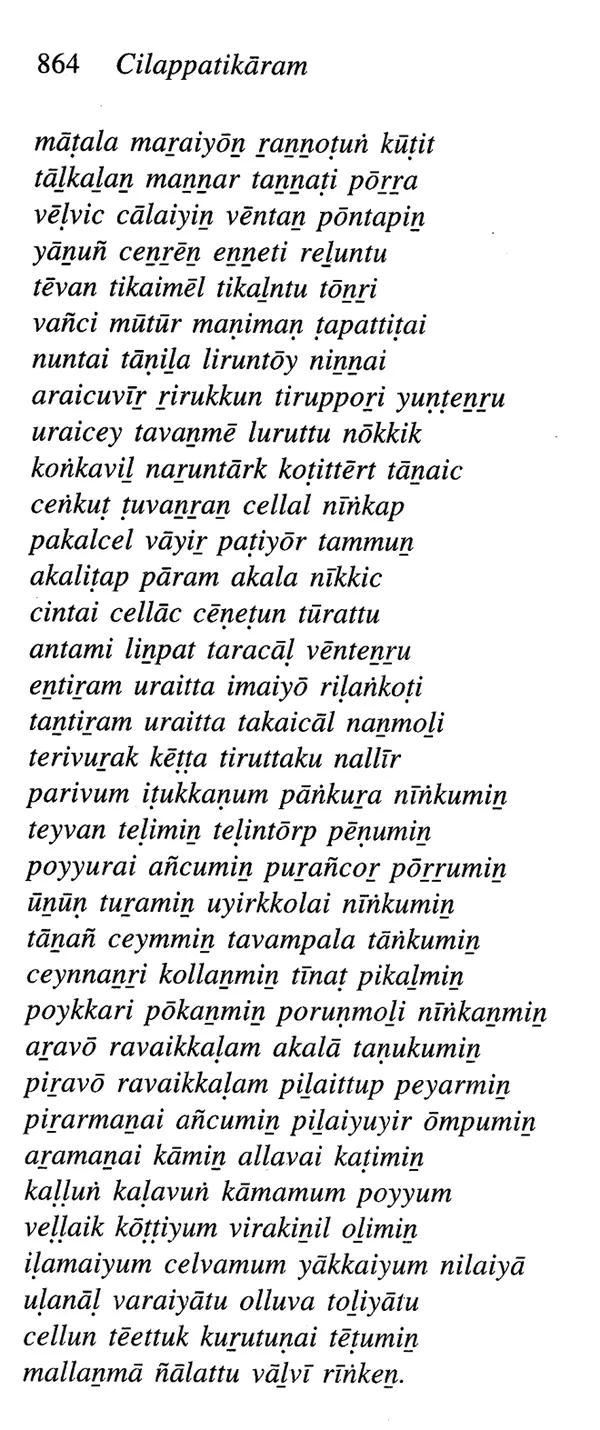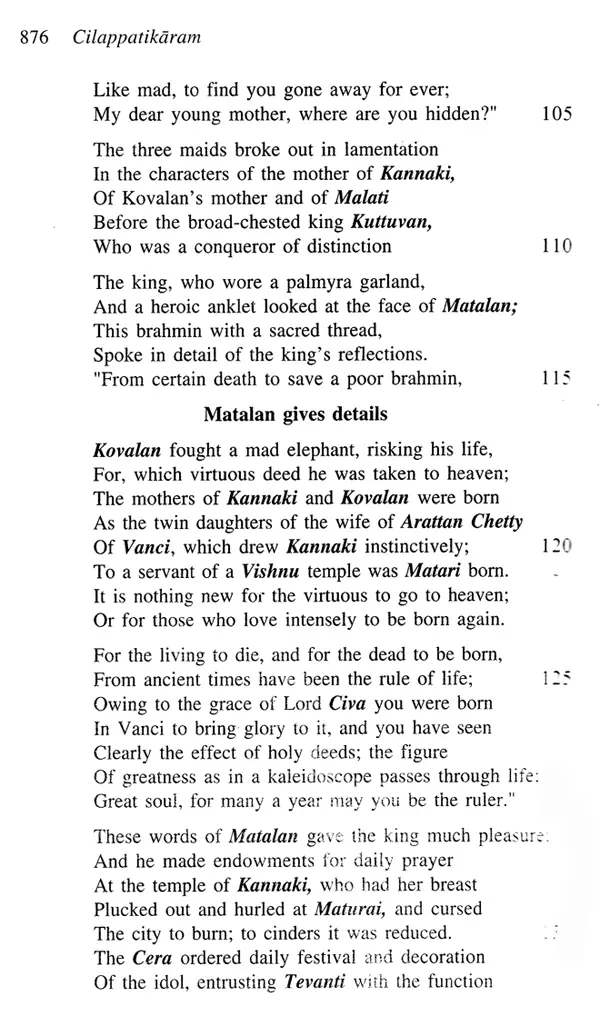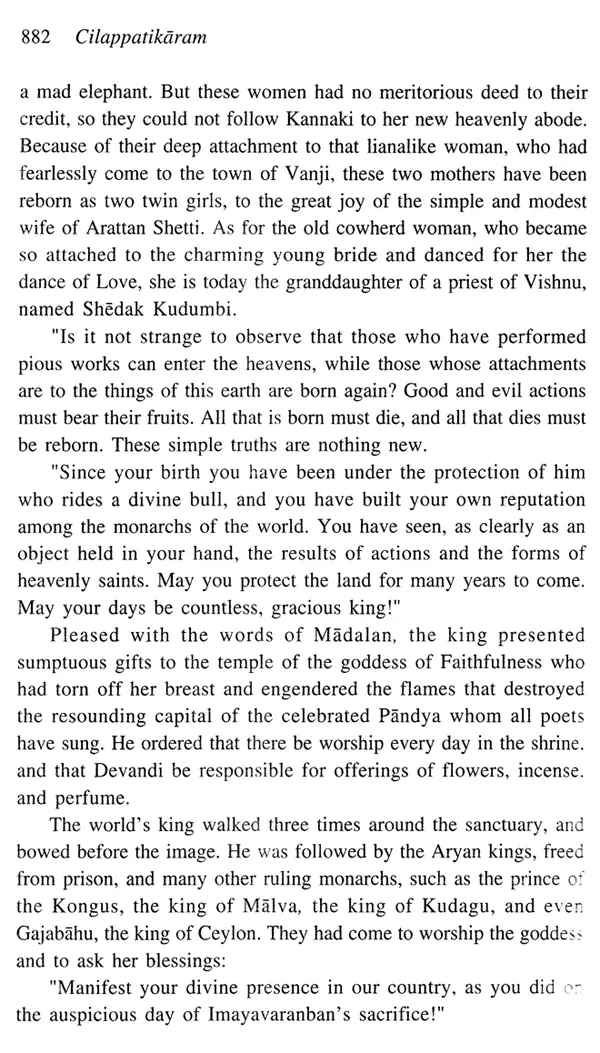
Cilappatikaram (Text, Transliteration And Translations In English Verse And Prose)
Book Specification
| Item Code: | UAW718 |
| Author: | K. Chellappan And R. Parthasarathy |
| Publisher: | Central Institute of Classical Tamil, Chennai |
| Language: | English and Tamil |
| Edition: | 2021 |
| ISBN: | 9789381744208 |
| Pages: | 928 |
| Cover: | HARDCOVER |
| Other Details | 9.30 X 6.30 inch |
| Weight | 1.46 kg |
Book Description
The Central Institute of Classical Tamil (CICT), established in Chennai, has mapped out various plans including preparation of definitive editions of forty-one Classical Tamil texts and translation of these works into English and other major European languages as well as into major Indian languages and writing of a historical grammar of Tamil. Language being the autobiography of a people, our objective is to preserve and safeguard the invaluable treasure of the literary compositions in our language. If only we could delve into our past and recover the riches and wealth of the mighty treasure trove of Classical Tamil poetry, we will be amply rewarded by its lofty poetry, the poetry that strengthens and purifies the holiness of heart's affection and enlarges our imagination. Apart from these, reading the ancient Tamil texts such as Tolkäppiyam, Ettuttokai, Pattuppättu, Tirukkural etc., provides a foundation for scholarship for the present and in this sense they do provide enlightened education.
It is heartening to write this foreword to the series of publications brought out by CICT, which I am sure, will do full justice to the masterpieces in Tamil without compromising on the quality of production. The Cankam corpus and the post-Cankam classics being a repository of our glorious culture, it behoves our present and future generations to study them and to convey their message and the vision of life embodied in them to the public at large. Let me, therefore, commend the series to the enlightened beings the world over.
I convey my hearty wishes to the Director Prof. R. Chandrasekaran and the Editorial Committee who have rendered their time and whole hearted involvement in the publication of Cilappatikaram.
Cilappatikaram, a literary masterpiece, referred to as the quintessential work of the Tamil mind and consciousness, is the first of the five major Tamil epics (perunkäppiyams), the other four being, Manimekalai, Civaka Cintamani, Valaiyapati, and Kuntalakēci. Nowhere in the world do we come across a work a literary hybrid-of its kind that incorporates in its makeup, the three genres: poetry, music and drama, iyal, icai, and natakam. The work abounds in songs with lyrical charm and lilting music, especially the songs sung by Kövalan and Matavi. The work is replete with a wide variety of musical compositions: kanalvari (sea-song), vettuvavari (hill-song), arruvari (river-song), ucalvari (song to accompany swinging), and kantukavari (sung by girls while playing). The work is also called a natakakkappiyam, which partakes of the characteristics of a tragi-comedy. Tragedy is alien to the Indian mind. The travails, suffering and death notwithstanding, Kövalan and Kannaki get united in wedlock in heaven, blessed by the gods.
Cilappatikaram, the epic in 5730 lines, is composed in akaval (also called aciriyam) metre, the principal metre in long narrative poetry. Each line in the verse has four feet; and the penultimate line has three feet. Kali and venpa are the two other metres used in the poem. There are some passages in prose and these are held to be the earliest writings in prose in Tamil. The epic is divided into three kantams (books), and each book, in turn, is divided into kātais (cantos). Besides a prologue and an epilogue, there are thirty cantos, of which twenty-two go by the name kātai while the other eight go by various other names. The three books bear the names of the three capital cities of the Tamil kingdoms (Cola, Pantiya and Cera). "The Book of Pukar" consists of nine cantos; "The Book of Maturai," eleven cantos; and "The Book of Vañci," five cantos. The cantos are of uneven length, the shortest being 53 lines and the longest 272 lines. There are five songs which perform the function of the chorus, commenting on the events of the narrative. These are: "The Love Songs of the Seaside Grove," "The Song and Dance of the Hunters," "The Round Dance of the Herdswomen," "The Round Dance of the Hill Dwellers," and "The Benediction." These songs adhere to the conventions of classical Tamil poetry. The three books correspond to the three modes of narration: the erotic, the mythic and the heroic. "The Book of Pukar" is based on the conventions of akam poetry; "The Book of Vañci" abides by the puram conventions. Thus, the poem attains a perfect structural unity.
